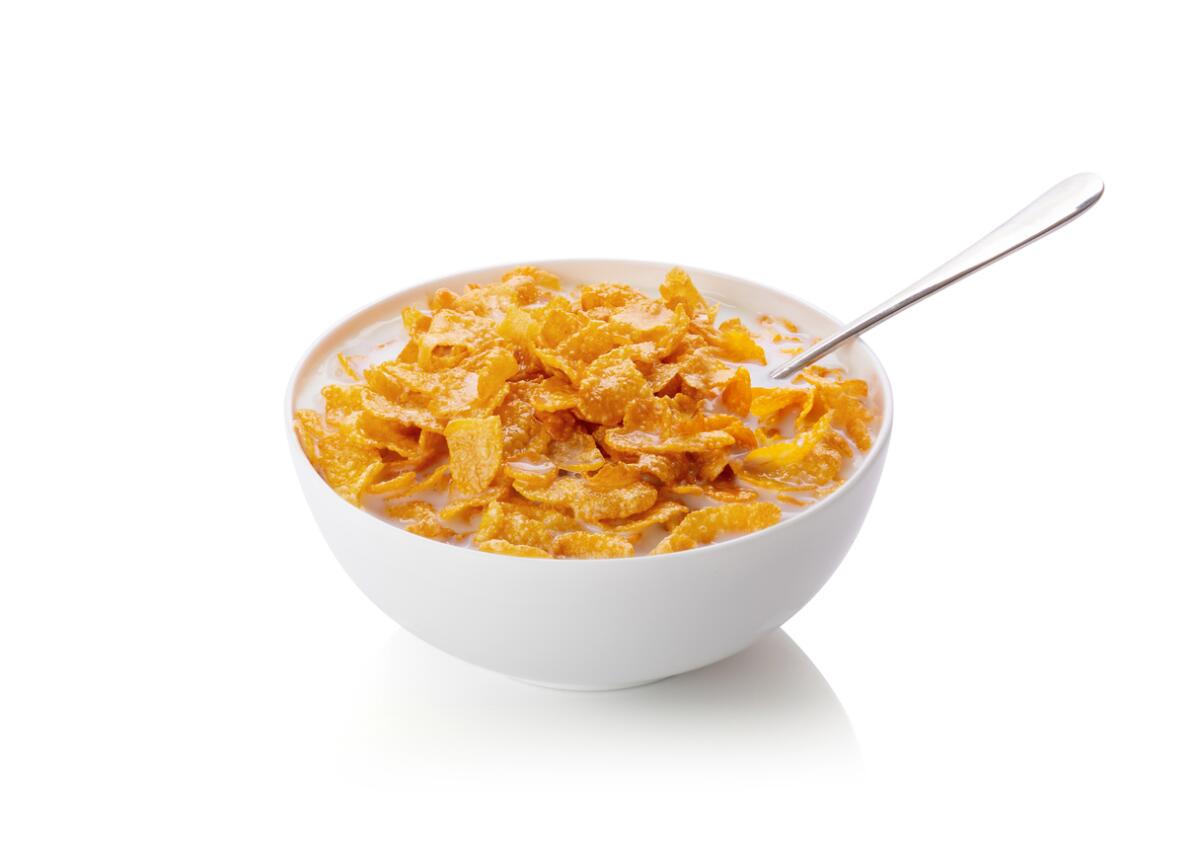This week in 1884, a patent for “flaked cereal” was applied for by Dr. John Harvey Kellogg, who was trying to improve the vegetarian diet of his hospital patients by creating a digestible bread substitute using boiled wheat.
Kellogg accidentally left a pot of boiled wheat to stand and become tempered. When it was put through a rolling process, each grain of wheat emerged as a large, thin flake. When the flakes were baked, they became crisp and light, creating an easy-to-prepare breakfast when milk was added.
His brother Will Keith Kellogg (W.K.) began his cereal-making career in the 1890s when he assisted his brother, saw the commercial potential and created the Battle Creek Toasted Corn Flake Co. (now Kellogg’s).





